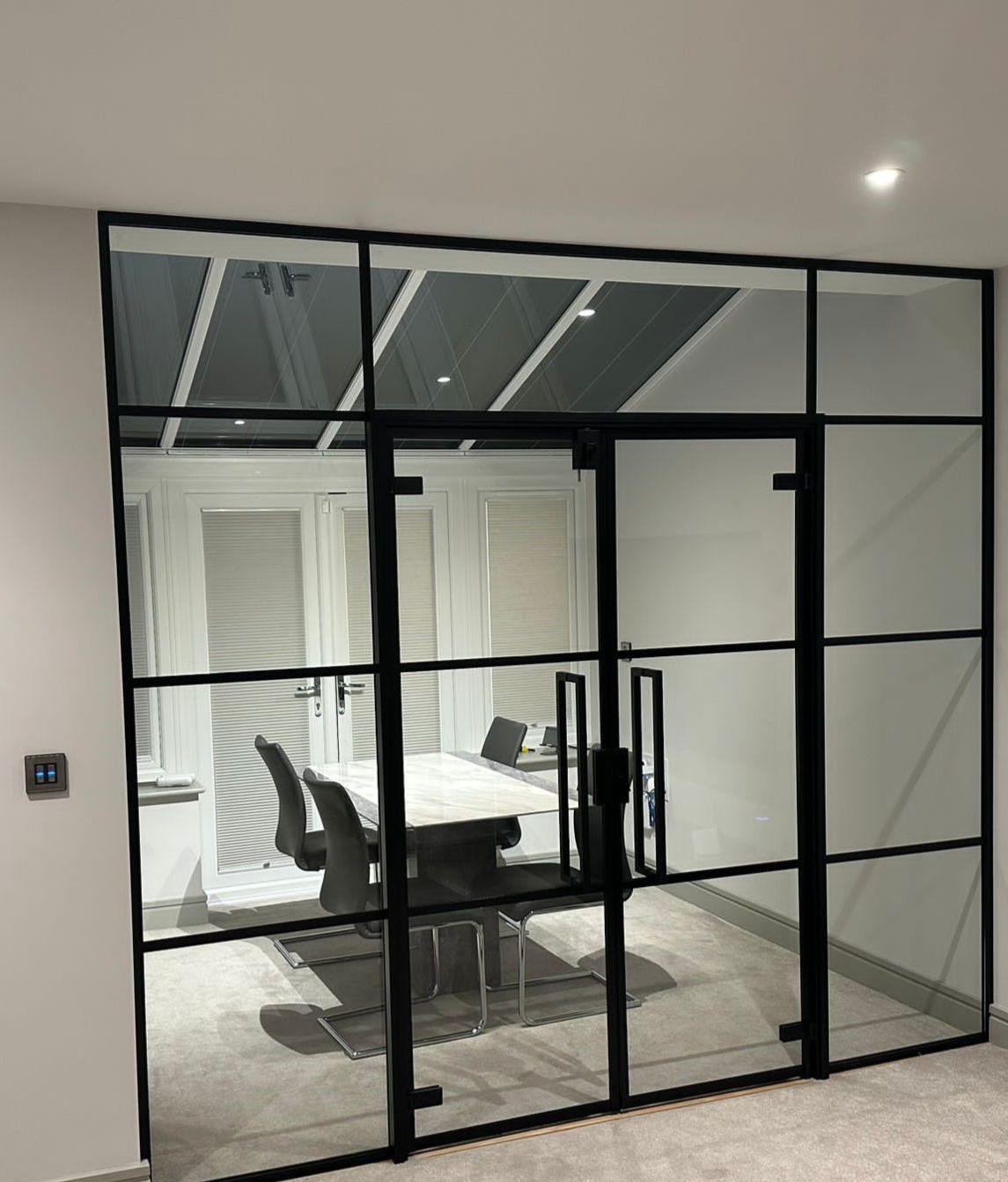
Glass partitions are no longer reserved for high-end corporate offices. Today, commercial glass partitions offer functional, stylish, and cost-effective solutions for a wide range of businesses from coworking spaces and conference rooms to clinics, hotels, and even educational institutions.
In this guide, we’ll walk you through what they are, where they’re best used, and how to choose the right one for your space.
What are Commercial Glass Partitions Used For?
Commercial glass partitions are non-load-bearing glass walls or dividers used to segment interior spaces while maintaining an open, bright environment.
Common use cases include:
- Creating private meeting areas without compromising natural light.
- Segmenting workstations in corporate offices.
- Adding sophistication to reception areas.
- Enhancing spatial flow in hotels, restaurants, and cafes.
- Designing hygienic, easy-to-clean surfaces for clinics and hospitals.
- Quiet study or consultation areas in libraries and wellness centers.
They strike a balance between privacy and openness making them a popular choice across industries.
Which Types of Commercial Spaces Benefit Most?
Glass partitions are incredibly versatile. Here’s how they benefit various commercial sectors:
- Corporate Offices
- Hospitality Spaces (Hotels, Cafes, Resorts)
- Educational Settings & Training Centres
- Healthcare and Medical Centers (Lobbies, Receptions, Pharmacies)
Frameless or Framed – Which Partition Style Should You Choose?
Both options offer their benefits – your decision should come down to functionality and aesthetics.
| Feature | Frameless Glass Partition | Framed Glass Partition |
| Appearance | Minimalist, sleek | Defined, structured |
| Cost | Higher | Lower |
| Installation | Custom-fit | Easier, modular |
| Acoustic Performance | Moderate | High |
| Flexibility | Low | High |
| Sustainability | Moderate | High with recyclable frames |
Pro Tip: Use a combination – install frameless partitions for internal meeting spaces and framed ones for higher-traffic zones.
Related Read: Frameless vs. Framed Office Partitions
What Glass Options are Available for Commercial Use?
Glass type directly affects privacy, safety, and acoustics. Here are the most commonly used types in commercial settings:
- Clear Toughened Glass: Strong and allows max visibility.
- Frosted or Etched Glass: Ideal for privacy without walls.
- Laminated Acoustic Glass: Reduces noise transfer between rooms.
- Tinted Glass: Adds a subtle layer of branding and glare reduction.
- Switchable Smart Glass: Turns from clear to opaque at the touch of a button.
Explore: Glass Partitions
Are Commercial Glass Partition Walls Safe and Compliant?
Yes, when installed by professionals, commercial glass partitions are completely safe and compliant with UK building regulations.
Key safety features include:
- Use of tempered or laminated safety glass.
- Smooth edges and minimal profiles.
- Fire-rated glass partition available for higher compliance.
- Anti-shatter coatings in public or medical settings.
Always confirm your installer is familiar with Partitions BS EN 12150-1 and BS 6262 compliance.
Want to Save Space Without Compromising on Design?
That’s one of the biggest advantages of commercial glass partitioning. Benefits include:
- Natural light flow
- Easy to reconfigure (especially demountable systems)
- Clean, modern look
- Reduced need for artificial lighting
- Boosted employee wellbeing and visibility
Sliding glass doors can further optimise small spaces, especially in offices or clinics with tight corridors.
FAQs
Yes, acoustic laminated glass can significantly reduce sound transmission. It’s ideal for meeting rooms, offices, and healthcare settings.
For small offices or clinics, installation may take 2–5 days. Larger spaces may require 1–2 weeks, depending on design complexity.
Yes, modular and minimally invasive glass partitions can often be installed without compromising architectural elements. Always check local planning permissions.
Minimal. Routine cleaning with non-abrasive glass cleaner is usually sufficient. Hinges, locks, and sliding tracks may require periodic checks.
Yes, demountable partition systems are designed for flexibility, making them ideal for coworking spaces and leased properties.













